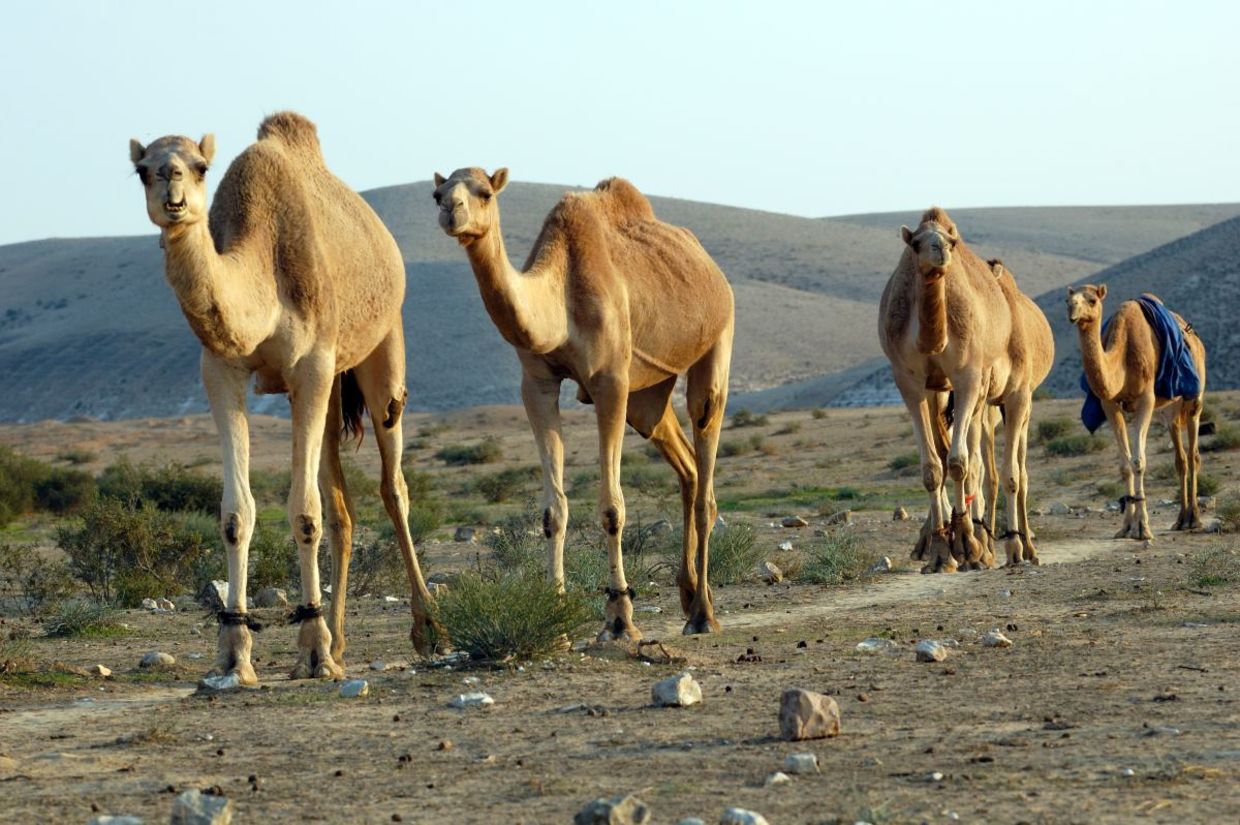
(PhotoStock-Israel / Shutterstock.com)
Camels have been used for food, clothing, providing shelter, and for transporting goods across the desert. It’s no wonder that these humped animals play such an important role in Bedouin culture and traditions.
While camel racing is part of the desert culture, it wasn’t legal – due to concerns about animal welfare – in Israel, until now. On November 1, 2024, the first official camel race was held in the Negev desert with thousands of spectators from both the local Bedouin and Jewish communities and from around the country, reported The Jerusalem Post.
Camel racing in Israel
Prior to this event, camel racing was held in the Negev in military zones where there was open space but the sport was unregulated and there were concerns about the safety of the animals and the spectators. Legalizing the races was seen as a way to regulate and make the races safer.
“We have turned the races from a dangerous and unorganized and [not] responsible event into an institutionalized and regulated event in cooperation with government and security officials,” Eran Doron, Head of the Ramat Negev Regional Council told The Jerusalem Post.
View this post on Instagram
The race was organized by the local Bedouin community with the Ramat HaNegev regional council, and several ministries including the Ministry of the Development of the Negev and Galilee reported YNet. Now, instead of camel racing being seen as a problem and a symbol of poor governance of the Negev, formalizing the races can now become a way to showcase Bedouin culture and to bring tourism into the area.
The first race
Local tribes and Bedouins from the north to the south participated in the races. Thirty young camels competed on a designated course 6-kilometer (3.7-mile) circular track while older animals ran a 12-kilometer (7.4-mile) course. The event was streamed on large screens with commentary in Arabic and Hebrew. Cash prizes were awarded to the winners.
The event lasted from early morning until the late afternoon and included rest areas, viewing stations, as well as medical stations. But this is just the beginning. Talai al-Kirnawi, the mayor of Rahat, a Bedouin city, near Beer Sheva told Ynet that he hopes to expand camel racing into an international sport with official facilities for future camel races.
The official camel race means much more than just showcasing Bedouin culture or bringing tourism into an economically depressed area, it is a symbol of cooperation in the Negev, stressed The Times of Israel.
“This race was very important for Bedouin society and Jewish society,” Sheikh Mohammed Abudel Al-Walidi told Times of Israel . “It is important that all the countries surrounding us see this and what we were able to do. I have not been as excited as I am today in a long time.”
This cooperation is a sign of hope in these troubling times, according to Nawaf Nabari, who hosted the event. He said: “We are here together, and we will stay together, and we will live here together, in peace.”
YOU MIGHT ALSO LIKE:
Unleashing the Power of Service
Boosting the Spirit of Volunteerism One Community at a Time!
A New Dawn in the Negev Wants a Better Future for Bedouins







